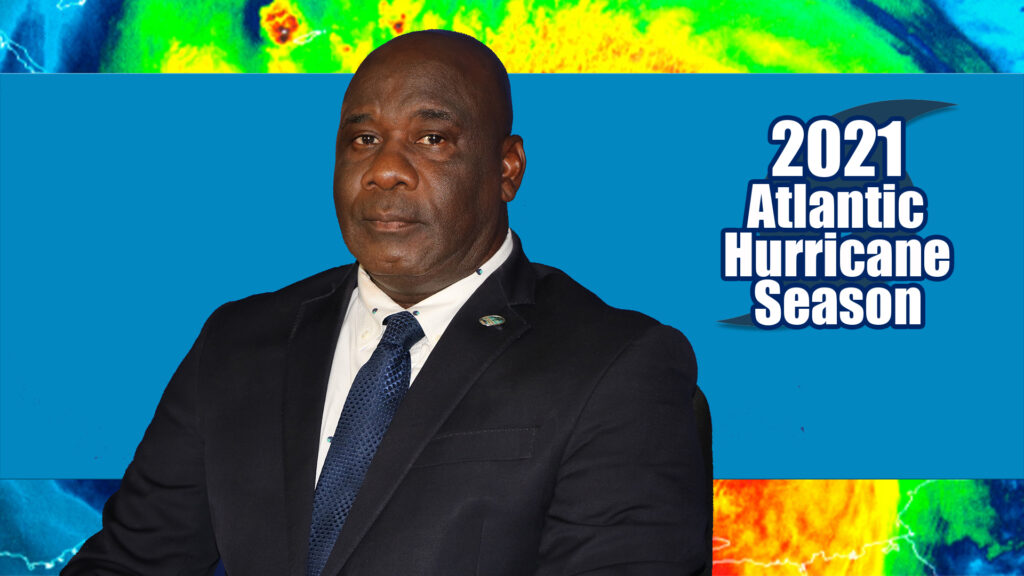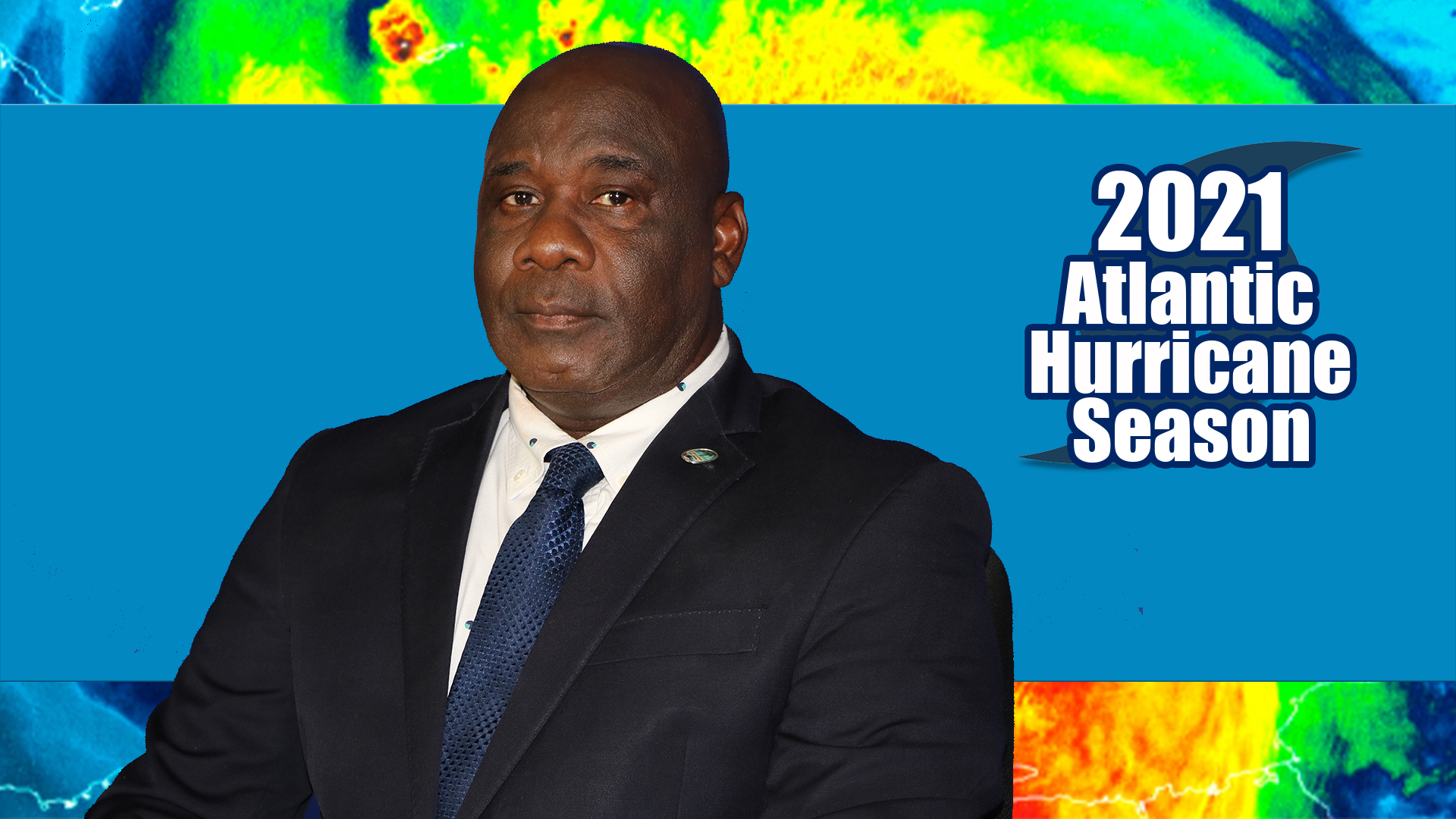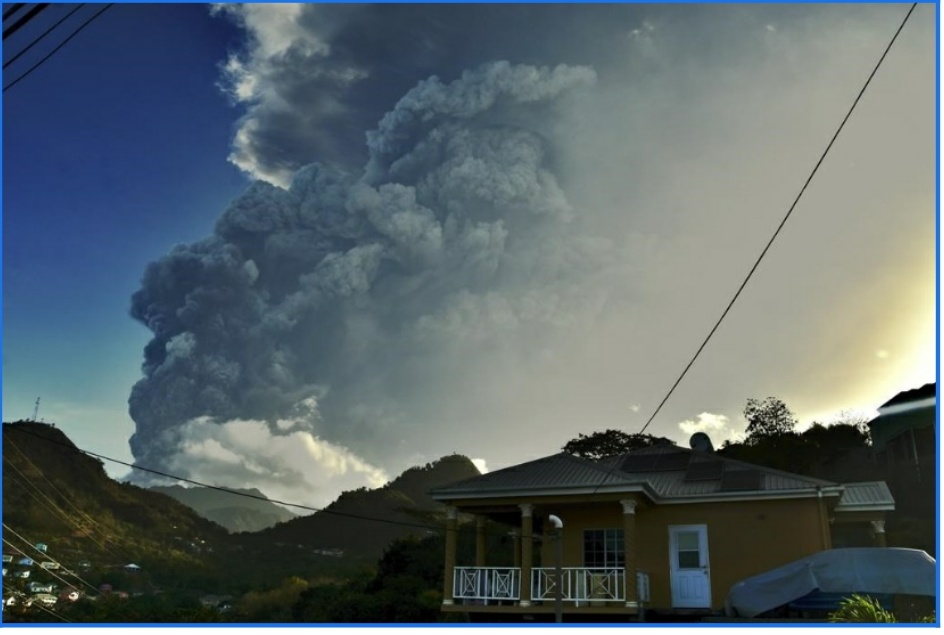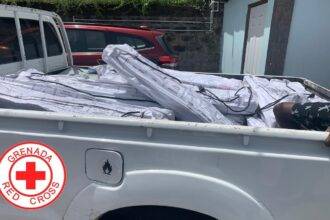
BY: Alexis Jeffers
Fellow citizens and residents,
The month of June is an important marker for the Caribbean region and the Southern United States as it represents the start of the 6-month Atlantic hurricane season. This season we are asked to be on guard and put our emergency plans in place as we are vulnerable to these dangerous storms. In 2020 Nevis was spared the dangers of an active hurricane season where we had two close encounters one in late July and the other in mid-August. The prospect of a hurricane impacting us especially at this time when we are being impacted by the COVID-19 pandemic is very troubling.
Last year, the Atlantic hurricane season produced 30 named storms. Previously, the most active Atlantic hurricane season was 2005, which produced 27 named storms. That season was the first to exhaust human names and saw the use of Greek letters.
The projections for the 2021 hurricane season show a likely range of 13 to 20 named storms (which will produce winds of 39 mph or higher), of these six to ten could become hurricanes (with winds of 74 mph or higher), and at least three to five major hurricanes (category 3, 4 or 5; with winds of 111 mph or higher). This prediction was made by the United States National Oceanic and Atmospheric Administration commonly referred to as NOAA, who are normally 70 percent or more accurate.
Some of the features that will impact the activities this year are a predicted warmer-than-average sea surface temperature in the Tropical Atlantic Ocean and Caribbean Sea, weaker Tropical Atlantic trade winds, and an enhanced West African monsoon.
While the predictions and forecasting capabilities of the experts seem to get better with time they still cannot control where a hurricane will impact. This information serves merely as advice and a means of making persons and interests in our island prepare accordingly, so that we can minimize loss of life and property.
The Nevis Disaster Committee has already convened one meeting in anticipation of the hurricane season and most agencies are ready to activate their disaster plans should it become necessary.
The current pandemic presents some economic challenges which affect preparations at the household level, the practice of physical distancing and masking, as well as sanitization regimes are problematic at the level of shelter management. Additionally, the possibility of prolonged disruption of essential water and electricity services not only could affect our comfort but our health as well. So it is important if not imperative that we are prepared and have contingencies in place.
In addition to the work that is being done at the community centres and shelters, the Nevis Disaster Management Department is investing in a robust communication platform that allows connection for our essential services which aids in safety, security and service delivery.
As Minister responsible for Disaster Management, I encourage us all to get our individual and household plans in place in anticipation of an impact, even while praying and hoping that we are once again spared. At the business level I also encourage managers and owners to get ready for any eventuality and in particular increase your stock levels.
I must also use this opportunity to encourage those who haven’t yet taken the COVID vaccine to do so urgently. You have seen and experienced the fears of other countries’ essential services being overwhelmed. Here in Nevis our resources are not enough to handle one crisis, therefore to handle two at the same time may prove to be impossible. As such, the prudent thing to do would be to control what we can while we can. The vaccine reduces the incidence of illness and transmission associated with COVID-19 and so I encourage you to protect yourself.
At this time I want to pay tribute to the Director of the Nevis Disaster Management Department, Mr. Brian Dyer and his entire staff for their proactive approach and their readiness in these challenging and demanding times. We continue to encourage our residents to stay safe and to always mentally prepare by paying attention to public service announcements or messages from authorities.
During and after a hurricane, you may need supplies to keep your family safe and healthy. Remember that a hurricane could cut off your power and water supply. You also may not be able to drive because of damage to your vehicle. Roads may also be flooded or blocked. That’s why it is best to be prepared. Stock up on everything you need now. Be sure to prepare the following:
1. Emergency food and water supply
2. An emergency medicine supply kit
3. Emergency power supplies such as a generator, flashlight etc.
4. Safety and personal items
5. Secure important documents and all other essentials that are needed to secure and protect your family.
Benjamin Franklin once said and I quote, “By failing to prepare, you are preparing to fail.”
Let us therefore prepare as best as we can for any eventualities this upcoming hurricane season may present.
May God continue to bless us all during these trying times.
END
Photo caption: Hon. Alexis Jeffers, Deputy Premier of Nevis and Minister responsible for Disaster Management in the Nevis Island Administration









